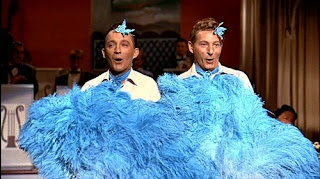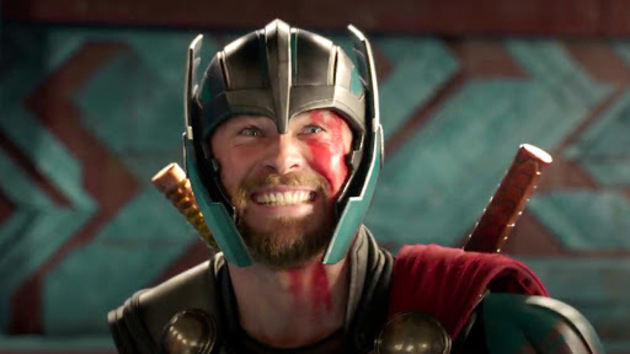Someday in the far off future, should the world endure that long, anthropologists will study the current generation and determine that the sheer volume of comic-book based movies between the years 2000 and 2020 have some sort of far-reaching implications on the values or mental health of the era. I won't disagree. Of the top ten highest-grossing films between 2000 and 2009, three were comic book movies:
Spider-Man, Spider-Man 2, and
The Dark Knight; this being a decade that also boasted
Avatar, the Passion of the Christ, and all of
The Lord of the Rings (
IMDB)
. Of the top ten highest-grossing movies from 2010 to now, three have been comic book movies:
The Avengers, The Avengers: Age of Ultron, and
The Dark Knight Rises (
IMDB)
. Between the various adaptations of
Batman, Spider-man,
Superman, Iron Man, Thor,
Captain America, the Hulk, Green Lantern,
X-Men and its
spin-offs, Ant-man, Catwoman, Fantastic Four, and all the movies yet to come, there is no shortage of superheroes in all shapes and sizes. With so much overload on these stories, one has to wonder when it's all going to collapse.

I want to take a moment to look at the evolution of the trend, particularly as regards the actors. About twenty years ago, comic book movies were so much of a novelty that audiences were relatively forgiving of cheesy writing and mediocre acting, as long as the story was moderately engaging and the visuals impressive. Thankfully, when the trend of comic book movies was still its prime, it raised the bar on multiple elements of quality, acting included. The success of
Iron Man, for example, could be attributed almost entirely to Robert Downey Jr's magnetism and charisma. Heath Ledger won a posthumous Oscar for his portrayal of The Joker in
The Dark Knight. Marvel and DC alike have managed to use renowned, respected, and popular actors and directors (many of whom are Oscar winners and nominees), which has further driven the point that comic book movies are no longer just cinematic fodder, but a lucrative genre with a broad audience and beautiful stories to tell. At least that's how it
was.
At the time of
The Avengers, the comic book trend was at its peak, and the movie not only grossed enough to claim the summer movie season, it scored an admirable 92% on Rotten Tomatoes, and joined the highly-coveted billion dollar club; a group that hosts
Titanic and
Avatar among its members. By the time
Avengers: Age of Ultron rolled around, every main feature character (except the Hulk) had at least two of their own movies, and the second
Avengers installment rolled in at an unfortunate 75% on Rotten Tomatoes.
The Dark Knight
continues to be hailed as one of the greatest sequels ever created of
any movie genre, boasting performances and plot twists that pushed
boundaries in all the right ways and transcended genres with its layered
plot. Sadly however, despite grossing over a billion dollars at the box
office, the follow-up movie
The Dark Knight Rises was widely panned by critics and audiences as director Christopher Nolan's long-expected fall from grace
, and a woeful close to an otherwise sterling franchise.

The Amazing Spider-Man reboot will forever be an incomplete trilogy, leaving the open ends of
The Amazing Spider-Man 2 unresolved
while yet another actor steps up to be Peter Parker for the third
distinct adaptation of the character. Neither of the
Thor movies did very well on their own with critics or mainstream audiences. The crushingly bad reviews of
Batman v. Superman: Dawn of Justice and
Suicide Squad sent Warner Brothers into a frenzy to replan their launch of
The Justice League. For the moment,
Wonder Woman may have saved them, but they have a long road mapped out with more potential for flat tires than smooth cruising.
In this era of movies, it's hard to say if franchise commitments are job security or career killers. Hugh Jackman played Wolverine nine times before his finish in
Logan. Samuel L. Jackson will have been Nick Fury at least nine times by the time Marvel is finished with him. Robert Downey Jr. has now been Tony Stark eight times and counting for upcoming movies. All the main members of
The Avengers have donned their respective personas at least two or three times (exception: Hulk). I'm not all that worried about the careers of Jackman, Jackson, and Jr. yet, but not everyone involved in this trend is as firmly established in Hollywood as these men are, and with commitments to a role that can now last over a decade, it stands to reason that some unfortunate actors will be the victims of typecasting. With the current overload of comic book movies, what might have previously been a "breakout role" is now just another superhero. Does anyone but me remember who played Superman before Henry Cavill? And I don't mean on
Smallville, although I haven't seen that guy around much either. Cavill is probably the most skilled as Clark Kent that we've seen in recent years, but by the time DC Comics is finished with the
Man of Steel, will anyone be able to see him as anything else? Can Chris Hemsworth carry a movie if he's not Thor? Recent Thor-less Hemsworth movies seem to say no. Tobey Maguire's post-Spidey resume hasn't exactly been packed out. Is it that the aforementioned individuals never had much skill to begin with, or is it that typecasting is real? Arguments can be made for both cases, but it still amounts to undesirable outcomes for the individuals.
I would present that until the last decade or two, cinematic technology was too limited to believably portray superpowers as comic books portray them. For this reason, the advent of special effects has, in a way, birthed a genre that could not have existed previously under lesser technology. While there were always a few movies here and there over the years, it wasn't until CGI that the fullness of what a superhero could do was able to be adequately explored onscreen. All that to say, the comic book movie surge that we have seen, especially over the last decade, is largely a result of a completely new genre bursting onto the scene. Once the ground was laid and a few bold films proved that Batman and Iron Man could be taken seriously, comic book movies began dominating every summer box office. Yet for that nuclear boost of quality, it seems that the genre has faded back into a realm where "serious" actors and stories are harder to find, yet the movement as a whole is desperately trying to prove that they can still do serious. However, as
Batman v. Superman proved, hype is a
pretty flimsy umbrella to bank under, and with the onslaught of Marvel and
DC movies dominating shelves, theaters, and upcoming releases, it seems
that hype is starting to wane.

Why is that? Well, how many origin stories can you really have before they all start to look and feel the same? Within currently established characters, there are only so many plot avenues that haven't been explored. Because so many of these movies overlap their companion films in some way, surprising character turns are forced to be limited in order to avoid repetition. For example, let's say that suddenly Tony Stark went on a quest to save his best friend (Rhodey, I guess) from dark brainwashing. We'd shrug and say "Steve Rogers already did that." While I know that there's no way
that any studio is NOT going to keep capitalizing on the revived
interest in comic book characters and stories, the relentless overload is starting to sour. And while I'm sure that for Marvel or DC to take a break would be missing an
opportunity to exploit a heightened
mainstream acceptance of what was previously a narrow field of
loyalists, this exhaustion of superhero films is sacrificing
otherwise good stories on the altar of hype.
Every time I think to myself that the pool is about to dry up, one of the two major distributors pulls another one out of their hat, like
Captain America: Civil War,
Logan, or
Doctor Strange. As I write this, DC and Marvel have sent forth their best efforts to face off at the summer box office in the forms of
Wonder Woman and
Spider-Man: Homecoming. We already had
Logan and
Guardians of the Galaxy Vol. 2 earlier this year, and still have
Thor:Ragnarok and
Justice League yet ahead before Christmas. And yet, is there not some sense of fatigue over it all? Does not some part of me recognize that obligation is beginning to preside over interest? With a few exceptions, movies are beginning to become billion-dollar episodes, with every other movie being the pilot episode of some "new" story that really isn't all that new, no matter what color the spandex is.
Analysts have argued that the
superhero genre saved Hollywood in an era where movie interest was seriously waning in favor of gaming movements. Perhaps the adrenaline shot the genre has offered explains why A-list actors like Will Smith and Robert Downey Jr. are willing to jump on board. But true to the nature of the evolving entity that is the audience, it simply can't be satisfied for too long on the same diet.
Steven Spielberg predicted two years ago, "there will be a time when superhero movies go the way of the Western" (Chitwood, 2015); a forecast that seems ever closer as box office numbers spike and fall with dizzying abruptness.
It's been fun to watch Tony Stark strut his way through his many quests, inspiring to see Steve Rogers grasp what being Captain America means, and certainly engaging to see Bruce Wayne finally be an interesting character. But when will even the strongest of these finally have no new stories to tell, no new tricks up their sleeves, and go the road of the over-visited Captain Jack Sparrow? Surely that time is coming, but not before every character has had their own trilogy plus ensemble trilogy, and a few cameos in one another's stories. No matter what kind of impossible odds have been overcome to save the world, there is always another post-credit scene to remind us that the stakes will be even higher in the next movie. To quote
Rolling Stone "When every movie is a can't-miss one-of-a-kind event, nothing is" (Bramesco, 2016).

































